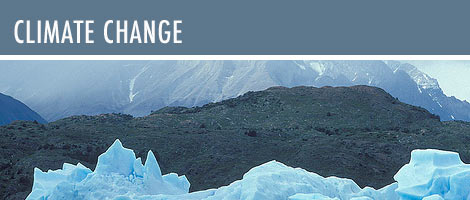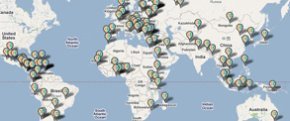Virtual Consultations on Climate Change

A virtual consultation helps to bring more voices to a global process on the environment
The Challenge
Faced with time and resource constraints, The World Bank’s Environment Group built a case to move the issue of Climate Change to the forefront of stakeholders’ agendas.
They had a good starting point. Most global indicators showing the impacts of climate change on developing countries indicated that by 2050 millions of the world’s most vulnerable populations would be reduced to environmental refugee status — displaced from their homes due to rising tides, drought and unstable weather patterns.
In early Spring of 2008, the team set out to draft a report that would include consultations in more than 60 countries – all in time for the Board of Directors review during the World Bank/IMF Annual Meetings in September. They approached the Global Development Network Secretariat (GDLN) for help to broaden the reach of their consultations and ultimately strengthen their report. “To create a credible document, we knew we needed to include as many voices as possible from real people struggling daily with the effects of climate change,” noted team Environment Group member, Anita Gordon.
Approach
The Environment Group and counterparts from GDLN formed a climate change consultation team and designed a series of virtual sessions that would allow members of the group to access a wider array of hard-to-reach stakeholders in South Asia. The team used the main objectives of the draft report to guide the design process. In the end, their objectives — to enable the World Bank Group (WBG) to effectively support sustainable development and poverty reduction at the national, regional and local levels, and to explore the WBG’s potential to facilitate global action and interactions among all countries – drove the consultation discussions and outcomes.
On July 9, 2008, the GDLN center at BRAC University (Bangladesh) hosted and facilitated the first two-hour virtual consultation in the series that brought together over 30 senior-level experts from across the country to inform the global strategy for tackling climate change and development.
As Senior Climate Change expert, Michele De Nevers noted, “part of developing a strategy is beginning to look at the process for how we do project screening for possible climate risks and make adjustments as needed. We are now undertaking a study on the economics of adaptation and Bangladesh will be one of six case studies.”
The first part of the consultation involved a face-to-face exchange in Bangladesh, where environment, energy and agricultural experts across various sectors discussed the need for a flexible financing mechanism for low-income countries, private sector and government buy-in, the transfer of technology, and adaptation versus mitigation plans. The second half of the event brought into the discussion World Bank senior environment experts in Washington, D.C., who were interested in obtaining concrete recommendations for next steps from Bangladesh.
Bangladesh was chosen as it is one of the twelve most at risk countries in the world. One professor explained “as a low lying coastal delta, Bangladesh is extremely vulnerable to sea level rise, increased storm surges and other typical extreme weather conditions. Our problem is unique and if not dealt with, will bring many adverse economic effects.”
Results
The virtual consultations held in Bangladesh, India and Sri Lanka (in September) reached 100 key stakeholders from research institutions, NGOs and government. The entire global consultation process, which included face-to-face sessions were held in 71 countries and reached close to 2,000 people, of which 43% came from developing countries.
The final report, Strategic Framework on Climate Change and Development, was ratified by the Board of Directors at the World Bank/IMF Annual Meetings. Echoing the voices of those who participated in the consultations, the report emphasized that “addressing climate change is critical to development and poverty reduction” across the world.
Next Steps
Plans are underway for GDLN to work with the Environment Group on a second series of consultations that will focus on the perspectives of youth for an upcoming publication.
For more information on this event contact Juan Blazquez ,GDLN Coordinator for the South Asia region at jblazquez@worldbank.org.
Resources
To read more on the impacts of climate change on developing countries:
1. On the World Bank’s Climate Change Activities and Strategy
2. Climate Change: Impacts, Vulnerabilities & Adaptation in Developing Countries

- 2165 reads
- Español
